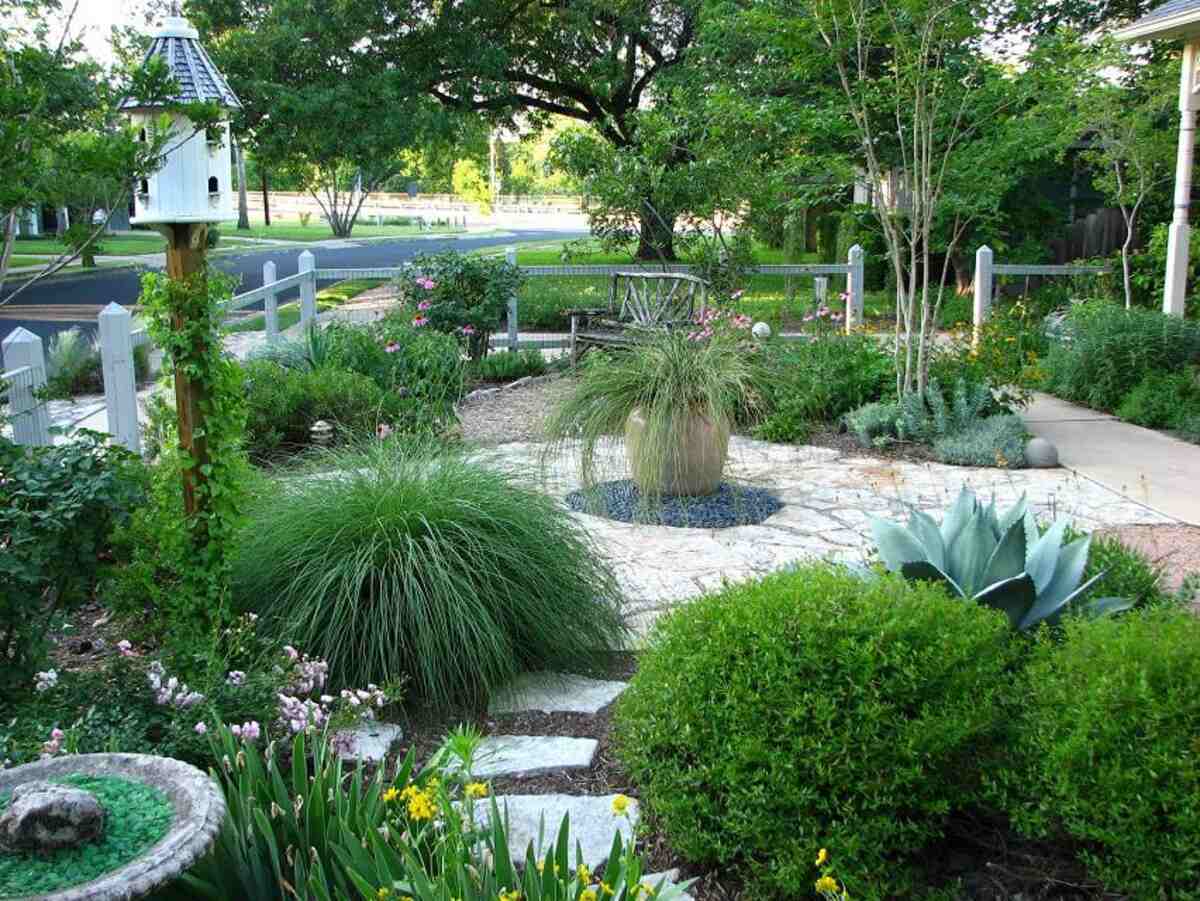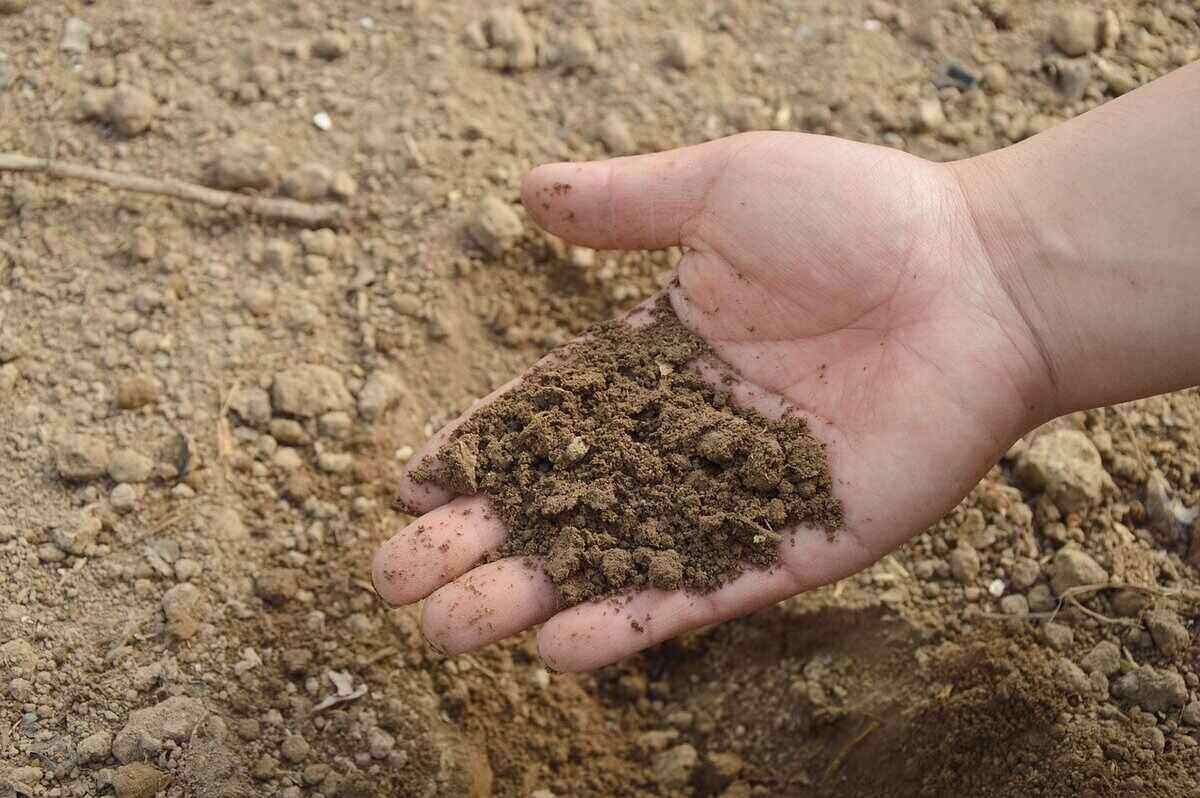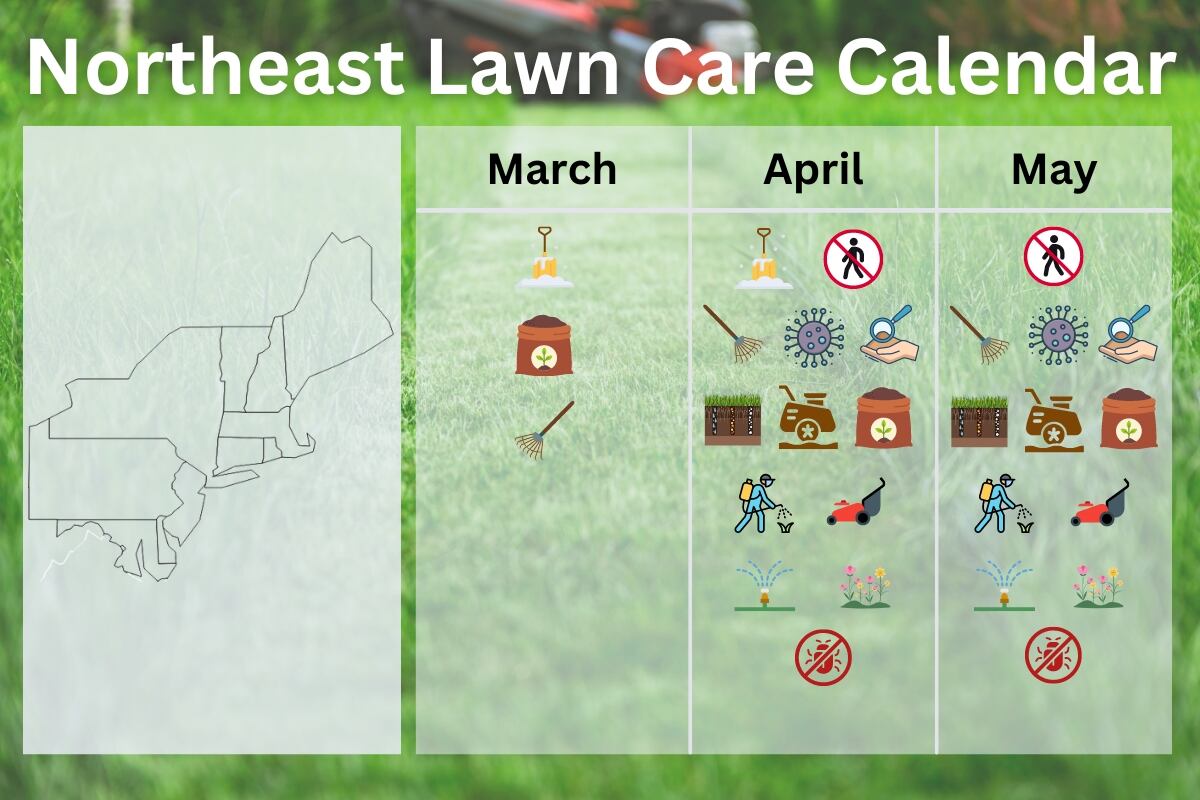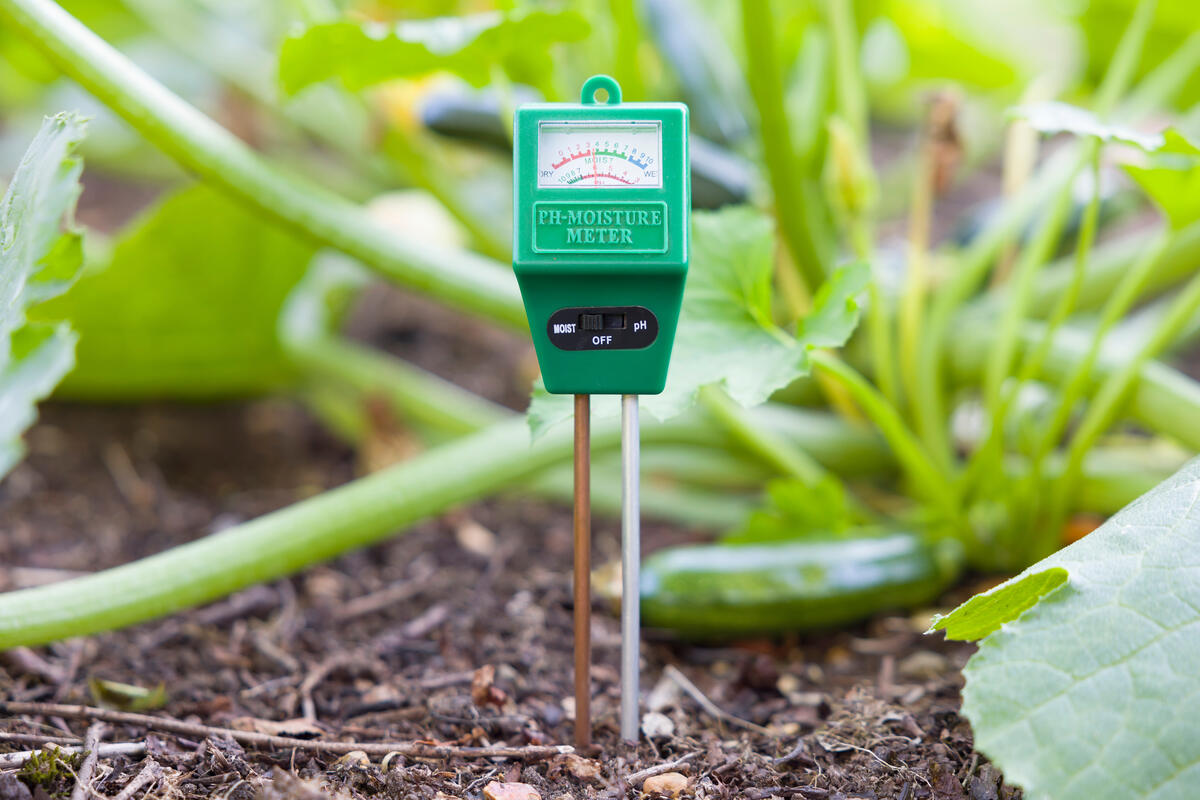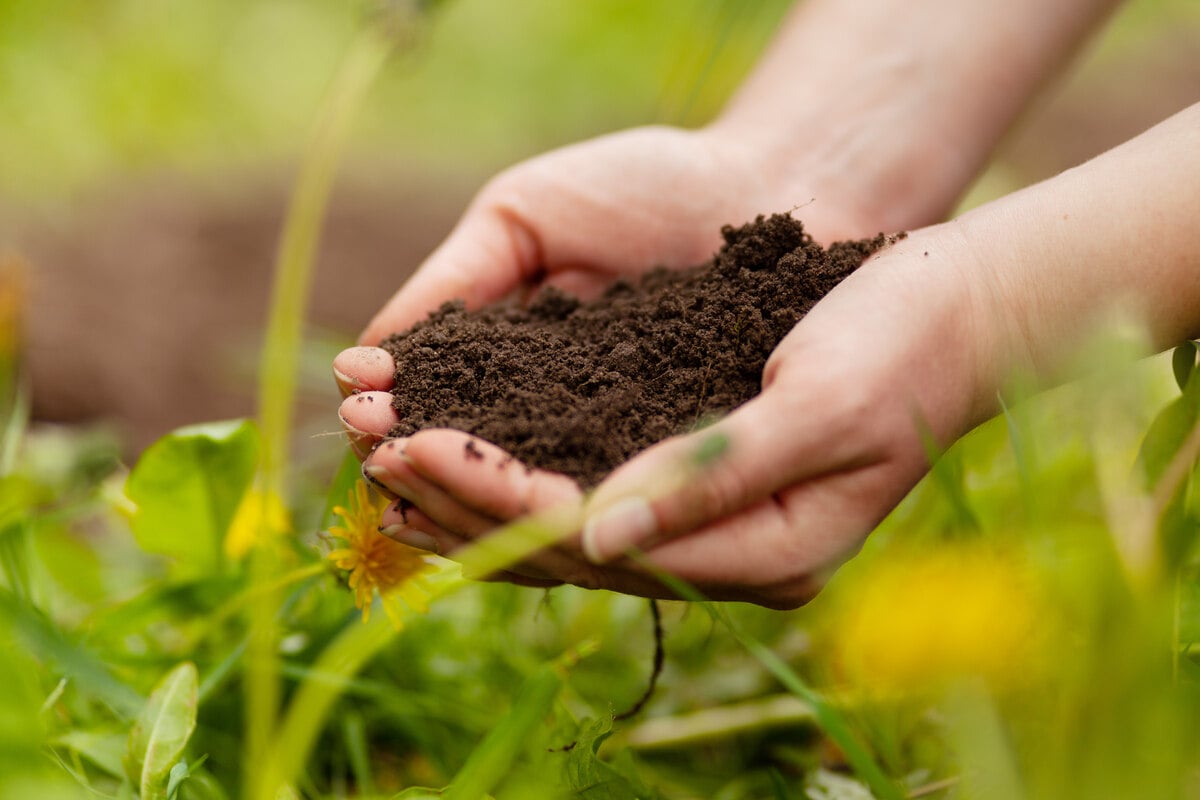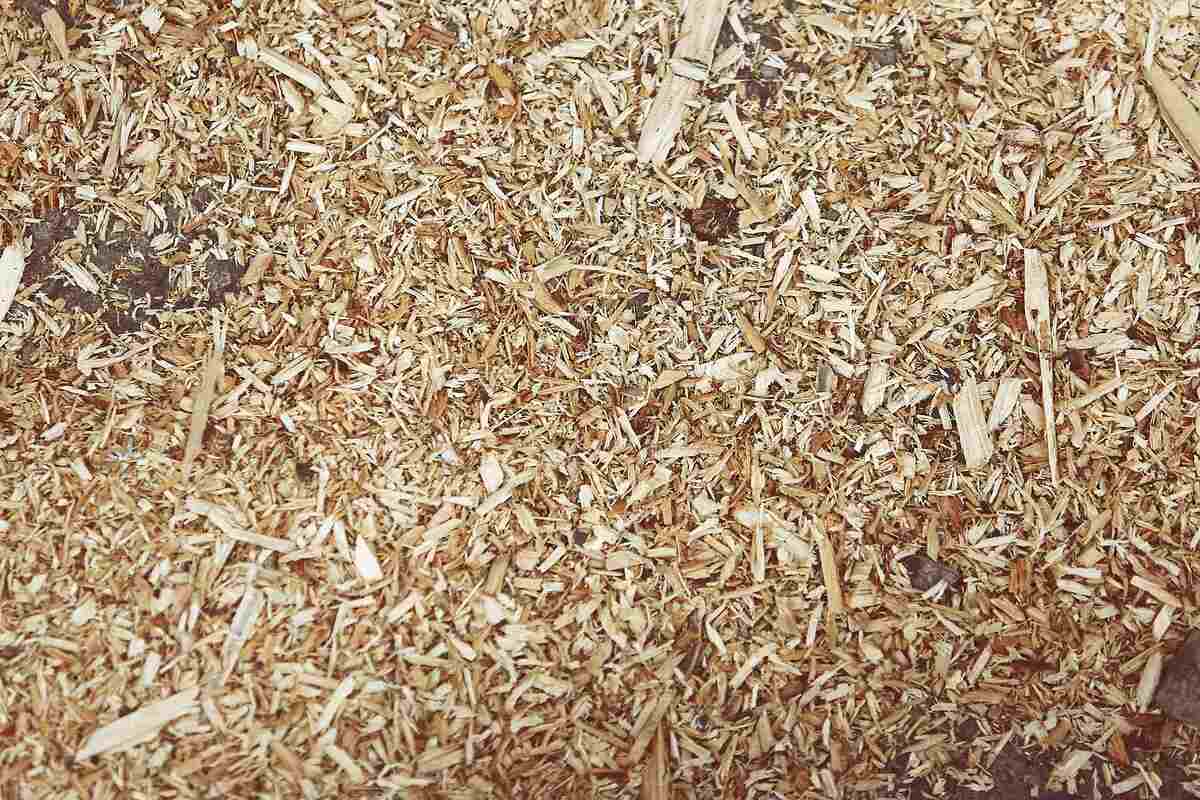
If you want to know where to get free mulch, you don’t have to travel far. You also don’t need to spend hundreds of dollars on a truckload or dozens of bags of mulch for your flower beds and landscaping. You can find free, high-quality mulch in your city, on your street, or as close as your front porch or backyard.
To help you get started, consider these 11 excellent sources for free mulch.
What is Mulch?
Mulch is a material that is spread across the soil in gardens, lawns, and landscapes. It can be made from various materials, including organic and inorganic types. Regardless of its composition, many homeowners use mulch for moisture retention during particularly arid periods. Aside from that, mulch also does the following:
- Blocks sunlight, interfering with weed germination and sprouting
- Contributes to soil health by providing nutrients through decomposing organic matter; this improves microbial activity, increases soil fertility, and prevents erosion
- Regulates soil temperature in both cool and warm weather
- Reduces soil compaction by acting as a cushion and reducing the impact of foot traffic, heavy rainfall, and other environmental conditions
- Boosts curb appeal by improving the appearance of flower beds and gardens
- Prevents diseases by acting as a barrier
11 Ways to Get Free Mulch
Mulch is an environmentally friendly and cost-effective way to enhance your yard. It’s even better when it’s free, so let’s dive right into all the ways you can get some cost-free mulch:
1. Tree Care Service
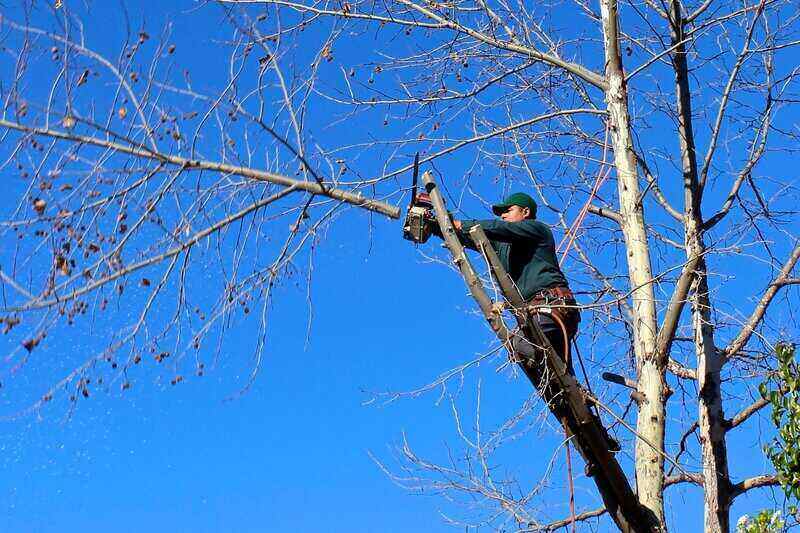
Tree services produce wood chip mulch from pruned, chopped down, or removed trees. You can request a mulch delivery from your local tree care company, and they will often bring a free load to your home instead of disposing of it in a landfill. Be sure to plan ahead and provide a spacious, open area for them to dump the mulch.
Wood chips obtained from an arborist typically consist of bark, wood, and leaves. This mulch’s diverse composition results in varying decomposition rates and promotes a biologically diverse soil. Wood chips are an excellent choice for mulching because they:
- Retain moisture
- Moderate soil temperature
- Control weeds
- Decompose slowly
Pro Tip: Don’t hesitate to ask about the mulch’s quality. Sometimes, low-cost or free wood chip mulch is not aged. Mulch that has not undergone the aging process can produce organic acids that are toxic to plants during decomposition. Additionally, free wood chips also may contain weed seeds or insect larvae.
2. Your City
Many cities offer a free mulch program that provides clean, high-quality mulch. To pick up the mulch, visit designated free locations, such as a park or recycling center. When collecting the mulch, it’s recommended to bring your own shovel and the following items:
- Heavy-duty construction or plastic bags
- Containers or a cart
- Gloves
- Goggles or protective eyewear
- Mask (to avoid breathing in spores or allergens)
Pro Tip: Many cities and counties recycle Christmas trees and turn them into free mulch after the holidays.
3. Your Utility Company
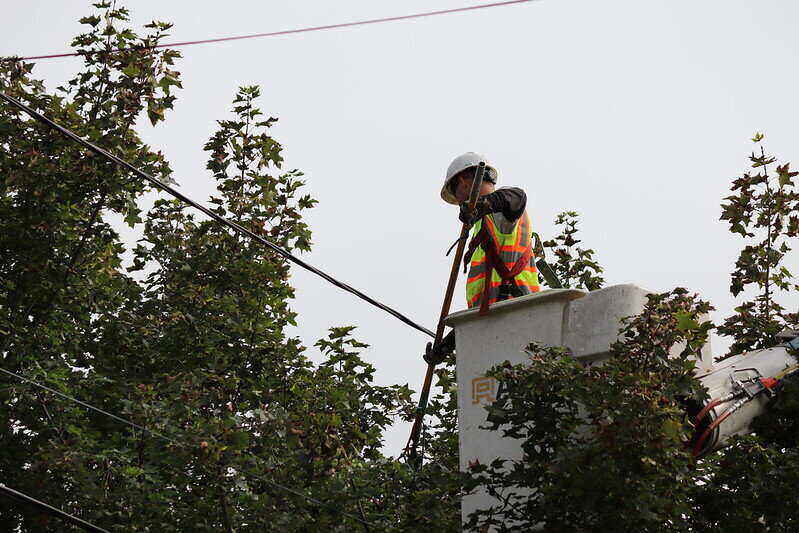
It’s common practice for utility companies to mulch limbs and trees after clearing branches near power lines. If you notice crews working in your area, ask whether they have any available wood chips to give away. They might be willing to drop them off at your location after completing their maintenance tasks.
You also can check their website for any local mulch distribution programs. Many utilities work with local organizations to set up various green initiatives, so you can get free mulch close to home.
4. Woodworkers
For free wood waste, reach out to a local woodworker (carpenter, furniture maker, cabinet maker, or woodcarver). In their line of work, they often generate large amounts of wood shavings, chips, and sawdust, all of which can be used as mulch in your garden. Offer to pick up the wood scraps yourself, and you may just get your hands on some free mulch.
Another approach is to look into woodworking classes or workshops in your community. These may be good sources of wood waste, as well.
5. ChipDrop
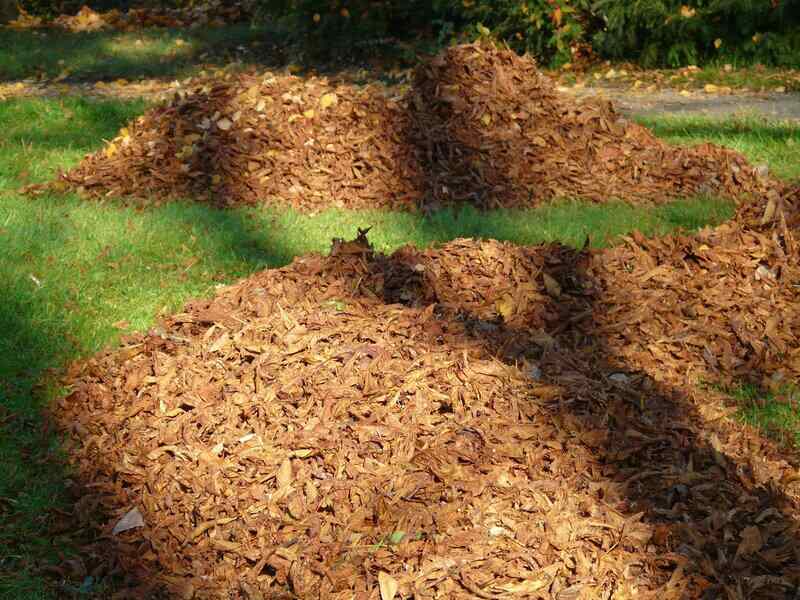
Sign up for the online platform ChipDrop, and you’ll get matched with a local arborist looking to dispose of some wood waste. In this win-win situation, you get free mulch for your garden, and the tree care professional doesn’t need to dispose of it at the dump. Plus, you won’t have to talk to them yourself, as ChipDrop will handle the entire process from start to finish.
As a recipient, you can specify a delivery location and be notified of the date and time. Check their website to see availability in your area. Once you get your mulch, you’re taken off the list to prevent multiple deliveries. The next time you need some, simply place another request from your account.
Pro Tip: Remember that you won’t be able to choose the type of wood waste you get or how much. Whether the tree company drops off too much or not enough, you’ll be stuck with that amount.
6. Backyard Leaves
Instead of bagging your yard waste for the landfill, shred it and return it to the earth. Leaves make a free, effective, plentiful mulch, especially in the fall. You can shred your leaves with your lawnmower while cutting the grass.
Homeowners also can use the leaves to make compost or leave them in the yard. Shredded leaves decompose quickly and help with weed control, enriching the soil with nutrients.
Pro Tip: It’s important to shred the leaves, as whole leaves can become soggy and attract mold to your garden.
7. Grass Clippings
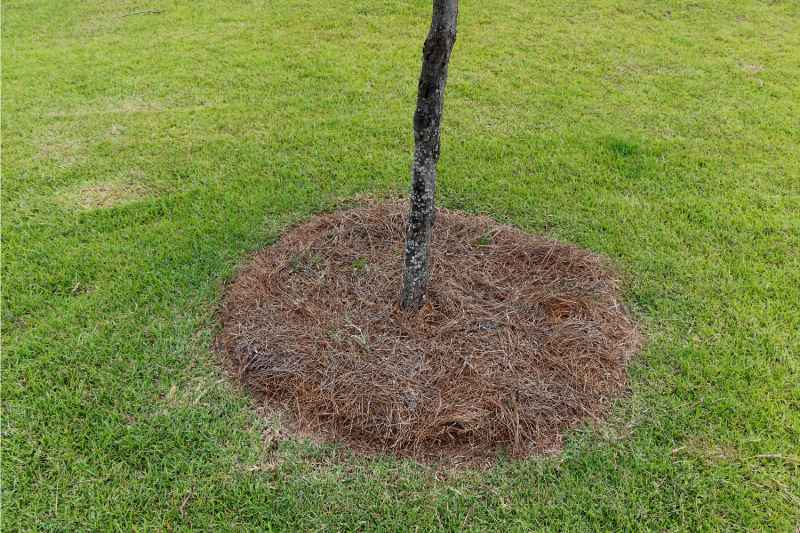
After mowing your lawn, mulch your grass clippings and use them in your garden or lawn. However, avoid using fresh grass clippings, as they can create a moist and matted barrier that hinders water absorption into the soil.
Once the grass clippings have dried, they become excellent weed-resistant mulch and do not contribute to thatch buildup. Grass clippings serve as a nitrogen-rich mulch, particularly beneficial for vegetable gardens.
Pro Tip: Don’t use grass clippings treated with herbicides or clippings that are diseased as mulch.
8. Compost
Yes, you can use your compost as mulch. Compost is rich in nutrients, and, of course, it’s free. Don’t have a compost bin? Free mulch may be the incentive you need to make your own compost pile, or opt for one of the best compost bins to make it easier to start.
You can compost:
- Fruit and vegetable scraps
- Tree trimmings and yard waste
- Coffee grounds and filters
- Tea bags
- Eggshells
9. Pine Needles
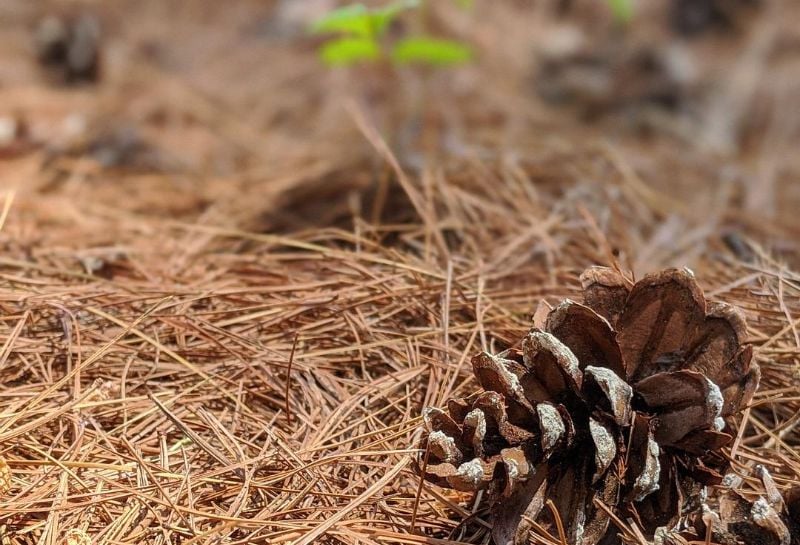
Finally, you can put those pine needles to good use. Pine needles decompose slowly and provide a pleasant fragrance to your landscaping. They are an effective mulch, especially on hillsides, as their interlocking needles help them stay in place and make an excellent alternative to landscape fabric.
Pine needle mulch is free and easily accessible. Plus, it also:
- Allows air and nutrients to penetrate the soil
- Retains soil moisture
- Helps prevent weeds
- Maintains soil temperature
Pro Tip: Pine needles won’t make your soil more acidic.
10. Newspapers
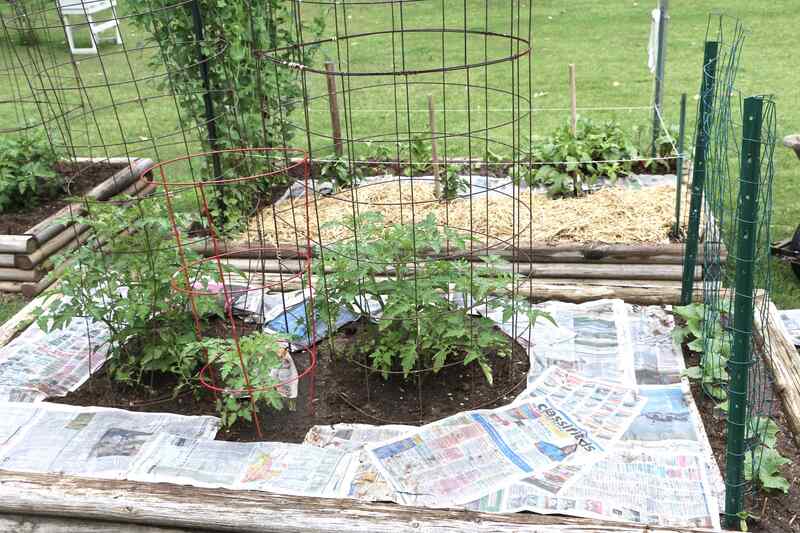
Recycling your newspapers (if you’re still a subscriber) as mulch limits waste in the landfill and saves you from spending on store-bought mulch. Newspapers have organic inks that are safe to use in your garden beds.
They are excellent for sheet mulching. To do this, layer two to four sheets of newspaper and cover them with attractive organic mulch like grass clippings or leaves.
11. Straw
If you live on or near a farm, straw makes a beneficial mulch for vegetable gardens, annual and perennial gardens, and newly sown lawns. Be sure to use straw rather than hay. Straw may contain weed or crop seeds, but hay often carries much more.
Pro Tip: Remember that straw is highly flammable, and you’ll need to replace it regularly.
Other Types of Mulch
If money is no object, you can purchase organic or inorganic mulch. Our mulch guide can help with the types of mulch, cost, and the best places to use specific mulches. While the cost of mulch will vary based on the material and amount needed, the average price is $17 to $68 per cubic yard.
When you’re ready to spread your wood chips or straw, the Clemson Cooperative Extension Home & Garden Information Center provides handy tools for applying mulch and identifying problems with your ground coverings.
FAQ About Where to Get Free Mulch
How Much Mulch Do I Need?
One cubic yard of mulch can cover approximately 80 square feet with a depth of 3 to 4 inches. It’s important to note that one cubic yard equals 27 cubic feet, equivalent to a volume of 3 feet long, 3 feet wide, and 3 feet high.
To calculate the amount of mulch needed, follow these steps:
- Determine the square footage of the area you want to mulch by multiplying the length by the width.
- Divide that number by 80 to get the required cubic yards of mulch.
Should I Add Topsoil to My Mulch?
No, it’s not necessary to add topsoil to your mulch. Adding topsoil over the mulch can make it more challenging to dig later, especially if you are adding plants, and you also may risk losing more topsoil due to wind and rain.
Does Mulch Attract Bugs?
Yes, mulch can attract certain pests, but there are ways to prevent this. One effective pest management strategy is to use mulch that is less attractive to insects, such as cedar or cypress mulch, or to use inorganic mulch like rocks. Another approach is regularly turning or fluffing the mulch, which can disrupt insect habitats and discourage nesting.
How Thick Should My Mulch Layer Be?
Typically, a thickness of approximately 2 to 4 inches is ideal to reap all the benefits mulch has to offer. Applying more than that can lead to root rot, air circulation problems, and pest infestation.
What Type of Mulch Should I Use in My Vegetable Garden?
If you’re an avid gardener, you know that mulch helps with soil moisture retention, soil temperature, and plant health. Mulches you can use in your vegetable garden include:
- Compost
- Grass clippings
- Shredded leaves
- Wood bark
- Wood chips
- Straw/hay
- Landscape fabric
Save Some Money on Mulch
Free mulch is a budget-friendly option that helps homeowners save money on landscaping, enhance curb appeal, and increase property value.
If you prefer professional assistance with your landscaping and mulching needs, consider contacting a landscaping service near you. They can efficiently handle weeding and mulching your garden, giving you more time to enjoy your outdoor space.
Main Image Credit: Pixabay / License
